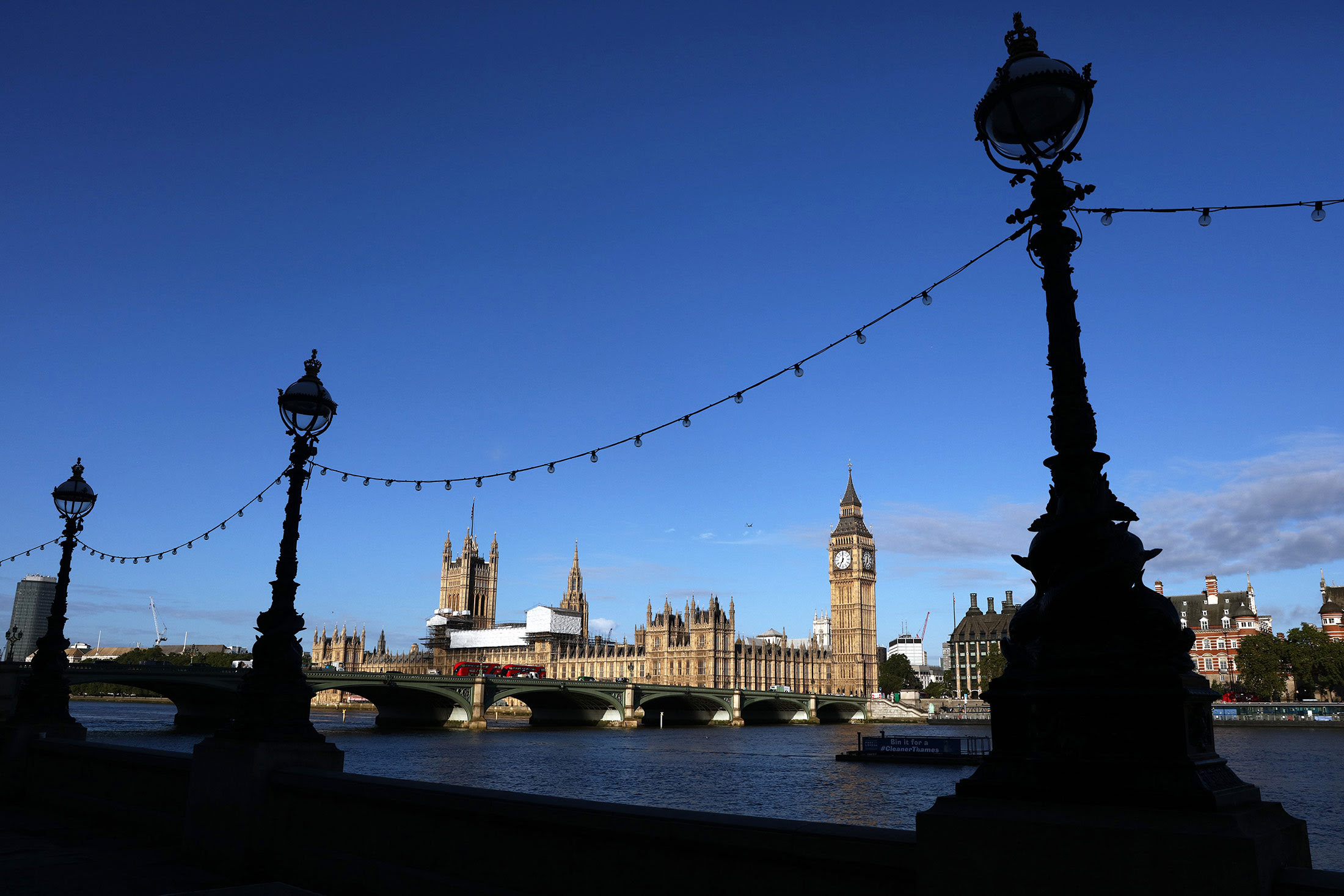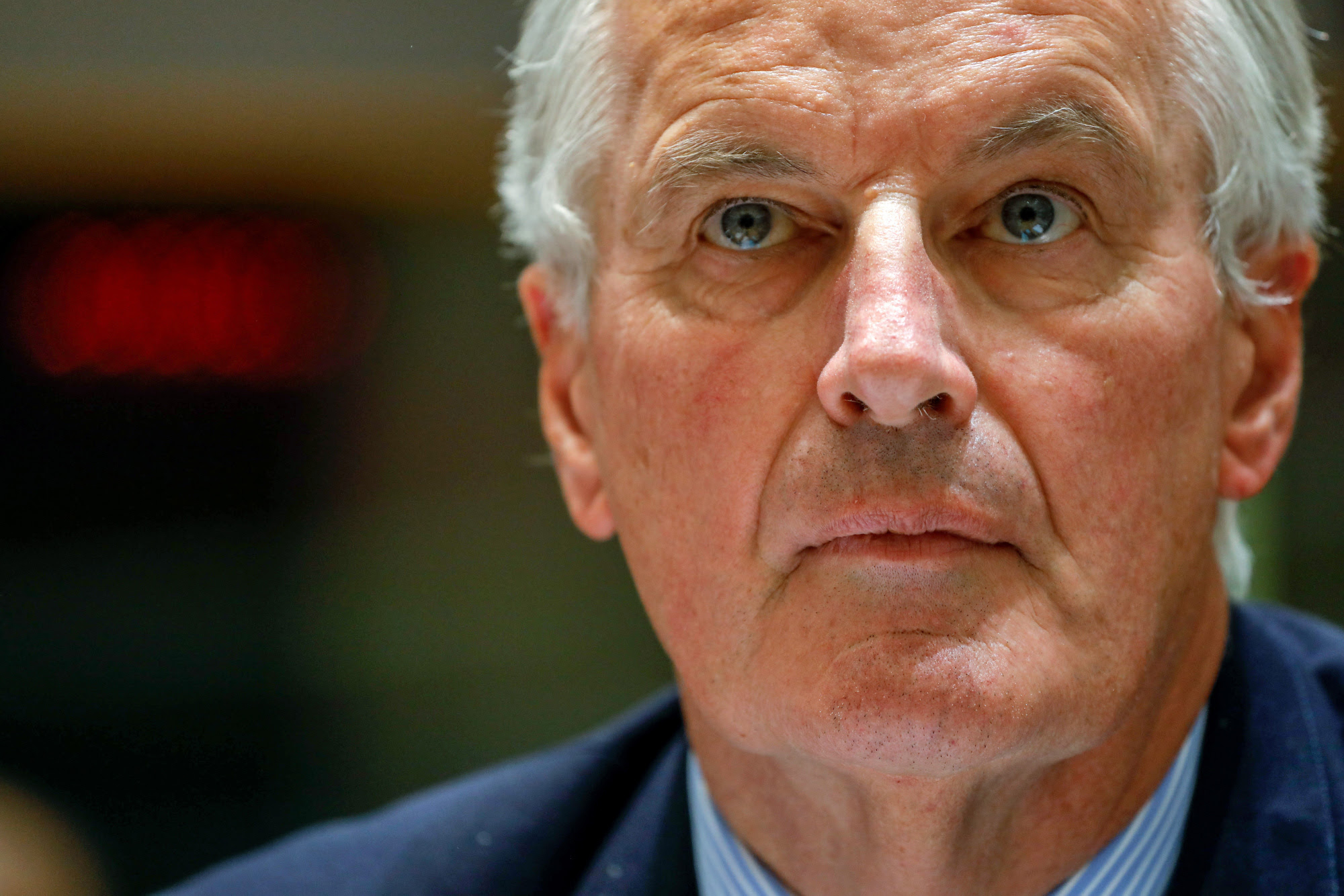Brits go into round two fighting themselves
A second round of Brexit talks starts today in Brussels, with the U.K.’s final goal still unclear and increasingly public splits in the Cabinet about what the final divorce should look like.
A spat over how long any post-Brexit transitional agreement should last dominated weekend news, with Chancellor of the Exchequer Philip Hammond arguing that any arrangement should remain in place for a couple of years to give businesses stability. His view contradicts that of Trade Secretary Liam Fox, who doesn’t want Britain’s hands tied for more than a few months.
The split over the shape of any transitional deal — arguably the most important issue for business and markets — adds to the sense of disarray on the U.K. side. Prime Minister Theresa May’s authority remains in question and ministers appear to be briefing against each other in the U.K. press. It also follows a clash between May and Brexit Secretary David Davis over citizens rights, the issue that tops the agenda today.

Davis, who initially wanted to guarantee citizens’ rights unilaterally, called on Monday for progress on the thorny issue. The rights and status of EU residents in Britain and Brits in the EU-27 is one of three matters, along with the Irish border and the size of the exit bill, that need settling before progress can be made on a trade deal. The clock is ticking as the March 2019 divorce deadline approaches.
Envoys will meet in Brussels through Thursday, with Davis and EU negotiator Michel Barnier meeting today. The starting point on citizens’ rights is May’s proposal last month. That plan divided residents into groups depending on how long they’ve been in Britain, failed to set a cut-off date, and left individuals and businesses wondering how much paperwork they might have to navigate. The proposals got a cool reception from European counterparts, who said they didn’t go far enough.
“We made a good start last month, and this week we’ll be getting into the real substance,” Davis said in a statement released by his office. “Protecting the rights of all our citizens is the priority for me going into this round, and I’m clear that it’s something we must make real progress on.”
“We made a good start last month, and this week we’ll be getting into the real substance,” Davis said in a statement released by his office. “Protecting the rights of all our citizens is the priority for me going into this round, and I’m clear that it’s something we must make real progress on.”
State of Play
Heading into round two, Simon Kennedy and Ian Wishart have taken a look at the key issues.
European Court of Justice: May said last year that one of her “red lines” was ending the court’s role in British law. She reemphasized that in a July 13 interview with The Sun. Should the court protect the rights of nationals post-Brexit? Davis has said it won’t, although he’s willing to consider the establishment of a new arbitration body. EU officials told Bloomberg News in June that they may be willing to concede on their demand that the ECJ serve as arbiter.
May’s spokesman said last week that “the transition rules could involve the ECJ for a limited time.” That would save Britain from needing a new regulatory regime for industries from drugs to aviation on the day of Brexit.
Nuclear: May said in March that Britain would leave the European Atomic Energy Community. But that decision drew opposition from the nuclear industry and from May’s own Conservative Party. The criticism was fanned by reports that the transportation of radioactive materials used to diagnose and treat cancer would be jeopardized. Davis suggested last week that the U.K. might seek an “associate” membership of Euratom. That could test his red line over ending freedom of movement.
Ireland: An agreement on the broad principles will be sought so that it doesn’t hold up the wider Brexit talks, four people familiar with the matter told Bloomberg last week. Germany questions the need for a totally open border between the Republic of Ireland and Northern Ireland.
The bill: Last week British Foreign Secretary Boris Johnson said the EU could “go whistle” because “the sums that I have seen that they propose to demand from this country seem to me to be extortionate.” However, the U.K. seemed to step back on Thursday when a written statement to Parliament referred explicitly to a “financial settlement,” with the government recognizing “the U.K. has obligations to the EU.” Now they just have to calculate how much.
Food for Thought
Leaving the EU without a deal could put U.K. food security in doubt, a report led by the University of Sussex says. Tariffs of as much as 22 percent, the need to replace a “vast array” of food standards institutions across Europe, and tricky questions of how to replace EU subsidies and seasonal farm laborers could all become key issues, the authors say.
The U.K. food system is “like the rabbit caught in the headlights, with no goals, no leadership, and eviscerated key ministries,” the academics wrote.
Brexit in Brief
- Chief EU negotiator Michel Barnier will bring up import quotas on the sidelines of the talks, Politico reports, breaking a pledge not to talk about trade until Brexit is settled
- Brexit may have put a six-year push for a financial transaction tax on ice, Bloomberg’s Alexander Weber and Mark Deen report
- Survation poll indicates 18 percent of voters think U.K. government is handling Brexit well
- Telegraph cites a Cabinet minister saying Hammond is trying to frustrate Brexit and treats pro-Leave ministers like “pirates who have taken him prisoner.”
- City of London Brexit envoy writes memo saying France is seeking to use the divorce to destroy the City, Mail reports
- Gus O’Donnell, former top civil servant, writes in the Observer that the prospect of a smooth Brexit is being undermined by squabbling ministers, unrealistic expectations and overburdened government
- The Brexit vote didn’t trigger an immediate economic slowdown, but now consumers are pulling back, Bloomberg Gadfly reports
- Former PM Tony Blair says Britain should keep open the option of staying in EU.



Comentarios
Publicar un comentario